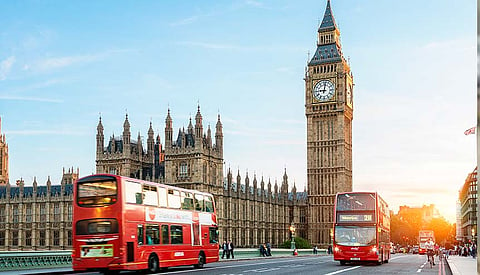

“This is a time of great ambition for the UK’s relationship with India. Both governments are working to advance shared priorities across trade and investment, health, sustainability and climate change and defence and security,” said Nigel Adams, UK Foreign, Commonwealth and Development Office (FCDO) minister.
“We are also working with India as a force for good in the UN Security Council and as one of the Prime Minister’s [Boris Johnson] guest countries at the G7 summit later this year in June. This cooperation will help us fix global problems and it will strengthen prosperity and wellbeing in India and the UK. However, whilst this is an exciting time for the UK-India partnership, it does not hinder us from raising difficult issues,” he said.
The minister was responding to a debate in the UK Parliament complex this week on the issue of peaceful protests and press freedoms in India, following an e-petition related to farmers’ protests in India having crossed the 100,000-signature mark that is required for it to be approved by the House of Commons Petitions Committee.
“India has a vibrant media scene that promotes lively debate across the political spectrum, and the UK government have worked to support that democratic tradition,” the minister added.
The FCDO minister reiterated the government line that agricultural reforms are a domestic matter for India and that British ministers and that the close bilateral relationship also means that “candid discussions” can take place on both sides, even during the planned India visit of Boris Johnson in the coming months.
This minister acknowledged the “alarm and uncertainty” the farmers’ protests and their press coverage in India had caused among British communities with family ties in India but pointed to ongoing dialogue between the Indian government and farmers’ unions as a promising sign.
The Westminster Hall debate, held in hybrid form due to coronavirus lockdown restrictions at the Boothroyd Committee Room in Portcullis House with some MPs participating via videolink, involved around a dozen cross-party MPs, including British Indian Opposition Labour MPs Virendra Sharma, Seema Malhotra and Tan Dhesi.
Sharma, the MP for Ealing Southall, said: “The right to peaceful protest is the cornerstone of a democracy, a right thousands of Indian farmers are using today and have used for months now. Both sides need to step back and recognise the need to come to an agreement.
“I hope the government will commit to helping that cause and offer British skills in a negotiation and compromise to help both sides to bring this issue to a close.”
From the ruling Conservative Party, Theresa Villiers MP highlighted that agricultural reform is an issue that has proved difficult across the world over the years and welcomed the postponement of the new laws in India to allow for greater “consultation and discussion” over the issue.
She said: “I hear the concerns expressed about the response to the protests, but when thousands and thousands of people are involved in demonstrations and encampments lasting months and months, no policing response can altogether avoid controversial episodes.
“India is a country where respect for the rule of law and human rights is constitutionally protected and embedded in society. The authorities’ approach to the protests should not shake our faith in that central truth. Rather than denigrating India with unjustified criticism, we should celebrate it as the democratic success story that it is.”
The High Commission of India in London said it had taken note of a “distinctly one-sided discussion” in response to an e-petition campaign on an India-related issue.
“High Commission of India has been, over a period of time, taking care to inform all concerned about the issues raised in the petition. We deeply regret that rather than a balanced debate, false assertions – without substantiation or facts – were made, casting aspersions on the largest functioning democracy in the world and its institutions,” a statement said.
“Foreign media, including the British media, are present in India and have witnessed the events under discussion first-hand. The question of lack of freedom of the media in India does not arise,” it added.